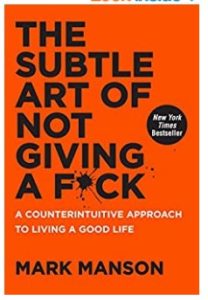 There are 5 key parts to becoming a consistent, successful shooter in the game of basketball. They are simple to understand but only the very best players actually put in the work to become great shooters.
There are 5 key parts to becoming a consistent, successful shooter in the game of basketball. They are simple to understand but only the very best players actually put in the work to become great shooters.
The 5 keys to become an excellent shooter are…
- Proper form
- Strength
- Repetition / Muscle Memory
- Game-like Practice
- Mental Preparation
1. Proper form can be developed using a progression of shots from close to the basket to further out. You want to get your form correct before you worry about the other aspects of shooting. Below is a video to show you how one of the best shooters does it (notice how many shots he misses, or doesn’t miss)…
2. Strength is required to add consistency and range to your shooting. In basketball, the key muscle groups include your arms (biceps/triceps), chest/back and core muscles. Coach Wheeler has a simple workout routine that hits these muscles quickly and effectively. The key to building strength is consistency. Working with weights once in a while is not going to build your strength. In addition, lifting weights that are easy to life won’t be much help either.
3. Repetition, Repetition, Repetition. To get better as a shooter, you need to “put up shots”. This will build your muscle memory as well as the strength you need in your hands and your eye/hand coordination. How many shots are enough? 100 shots per day is over 36,000 in a year or 140,000 over 4 years of high school. That seems like a large number but there are players putting in 1000 shots per day, sometimes with the help of shooting machines like Dr. Dish or Shoot-a-way, which can add up to over 1 million shots in high school. What is right for you? It depends on how good you want to be. Check out this short video showing a 1000 shot workout…
4. Game-like Practice means taking shots in the style that you will be required to use most often in a game. Once an opposing team realizes you can shoot, they are unlikely to let you stand in one spot and shoot away. You are going to need to move to get open, perhaps make a move or two so you can get your shot off. This all needs to be part of your practice plan so that you are prepared for game situations. I like to see players incorporating either a move and one strong dribble before taking their shot or working on their catch&shoot as if they are coming off a pick. Whatever you are going to use in a game, you need to work on, and perfect, in practice.
5. Mental Preparation is one area that many shooters forget about. How are you going to perform when the pressure is on and you have to take the shot to win the game? Or more importantly, are you going to be able to hit every wide open shot you get? We see it all the time… someone is a good shooter but they are given too much time to shoot and they start thinking about how they “should” shoot. Their head gets in the way and they miss. Shooting, at least from a mental perspective, is all about trusting your training and just “pulling the trigger”.
Dr. Bob Rotella, an acclaimed sports psychologist, talks about the Trusting vs. Training mindset. The Training mindset is when you are practicing and perhaps fine tuning your mechanics or footwork. The Trusting mindset is what you need to use in a game since thinking about your form will only make it less smooth and less natural.
5 seconds left on the clock. You have the ball…
It is important to put as much pressure on yourself in practice as possible so that you can get used to high pressure game situations. The other mental trick when you get into a game is to fall back on all the work you put in and remember that you have proven to yourself, over and over again, that you can put the ball in the hoop. Just trust your training and make it happen.
Bottom Line if you want to become a shooter …
If you combine these five keys you will become an above-average shooter over time. The key is consistency of effort.
Here is BONUS idea # 1 which I picked up from Dave Hopla, former shooting coach for the Detroit Pistons. “Keep track of your results.” Dave tracks every practice and shooting demonstration that he does and it is a great way to see your progress both in your shooting percentage (Dave shot 98% the time I saw him give a demonstration) as well as the volume of shots you are putting up. It is also a great way to track your “streak” or number of consecutive days that you have done your shooting workout. Don’t break your streak and you will be amazed by how much you can improve over time!
BONUS idea #2 is from a player that scored over 2000 points in his high school career, Tom Brayshaw. He says that you must “Master the Mundane”. In other words, you have to do the little things that are sometimes boring or mundane, over and over again, if you want to become a good shooter. The way I like to think of this is you have to motivate yourself to get out on the court and put up the shots, even when you don’t feel like it. It is precisely those times that separate the OK or mediocre players from the shooting stars. If it helps, imagine that with each practice session you are passing one more player who didn’t put in the effort. You are one step closer to being the best. Will you be the best? You never know who you will encounter on the court so be sure to bring your best effort every day.

 If you have not seen my previous Mental Toughness post:
If you have not seen my previous Mental Toughness post: 

 Let me start off by telling you…
Let me start off by telling you…